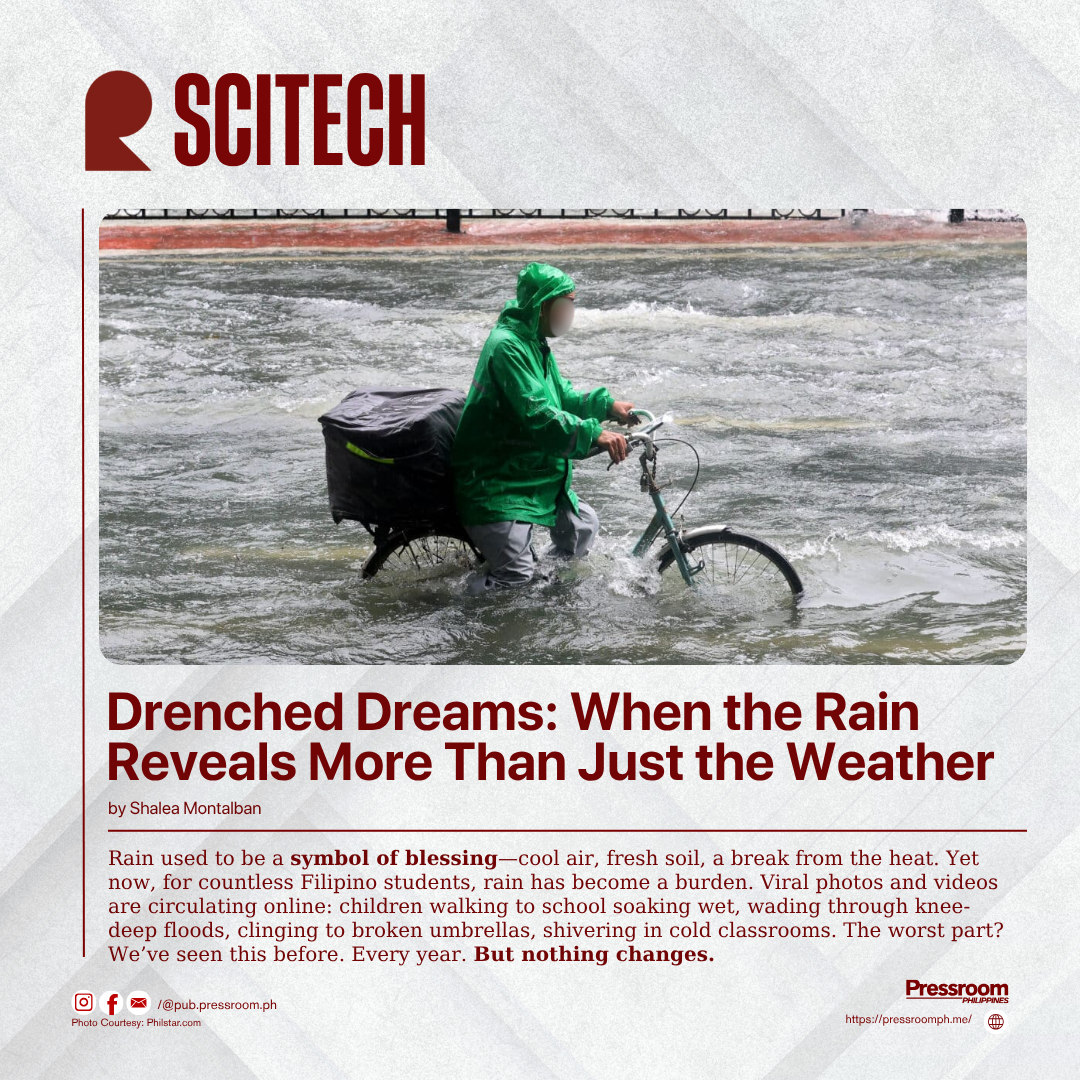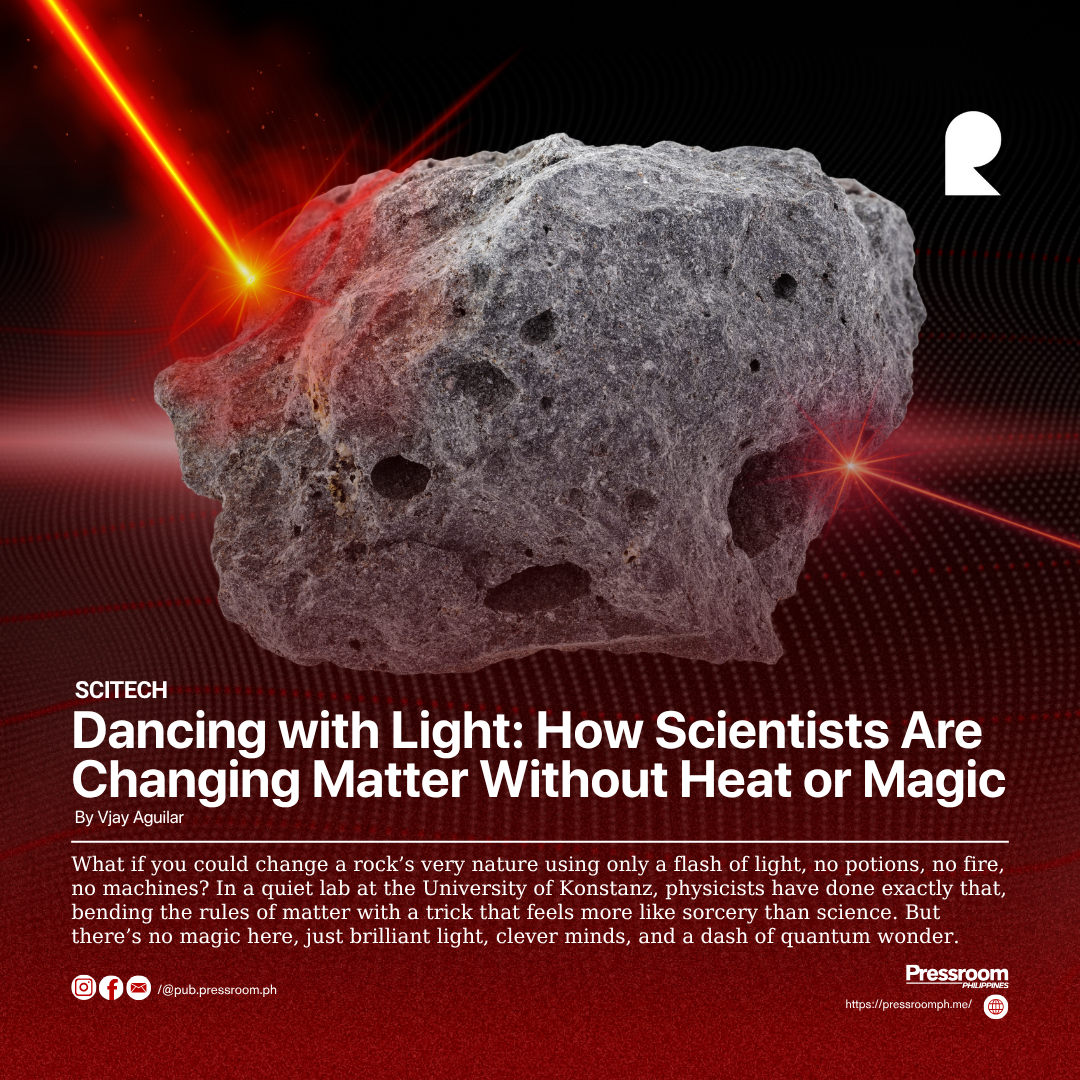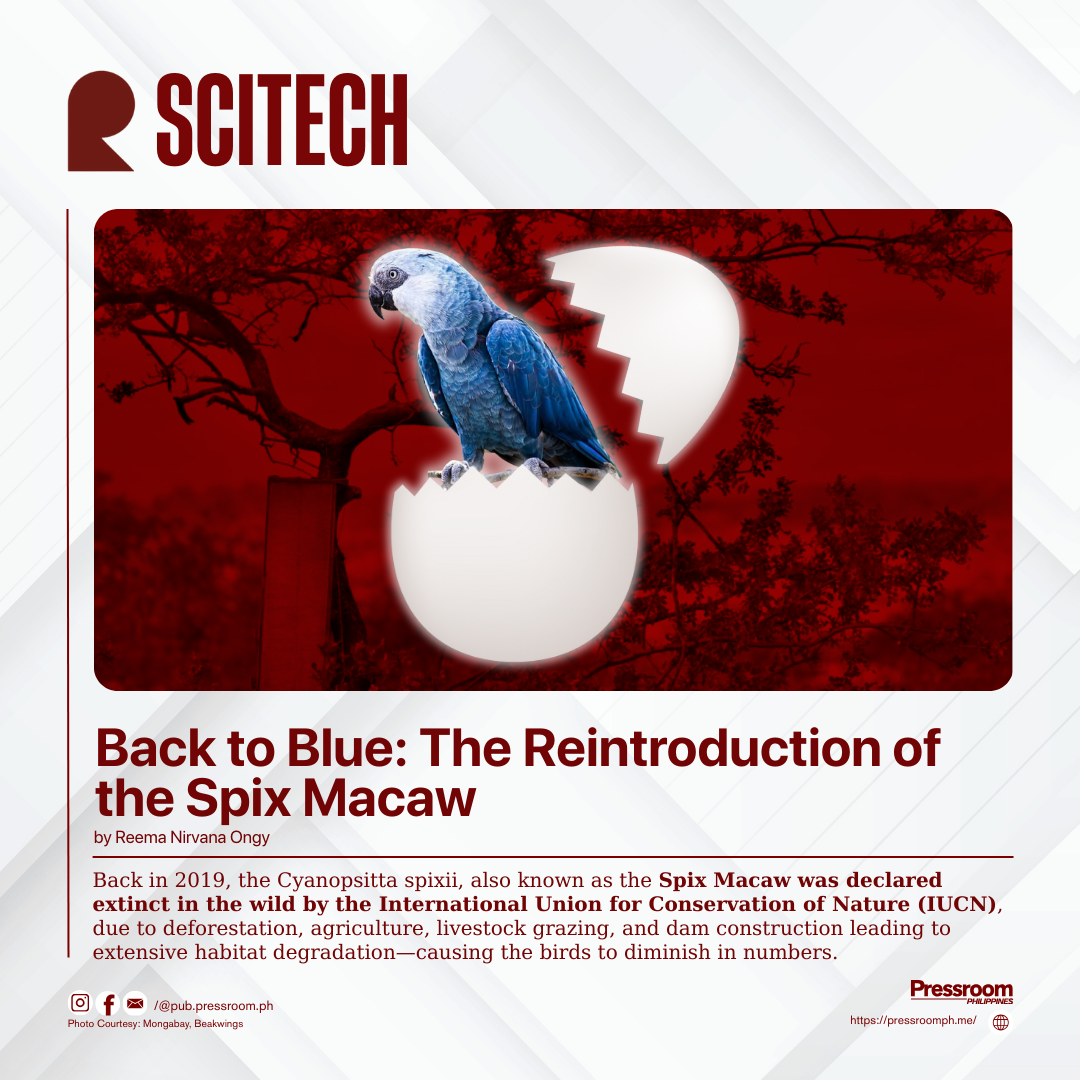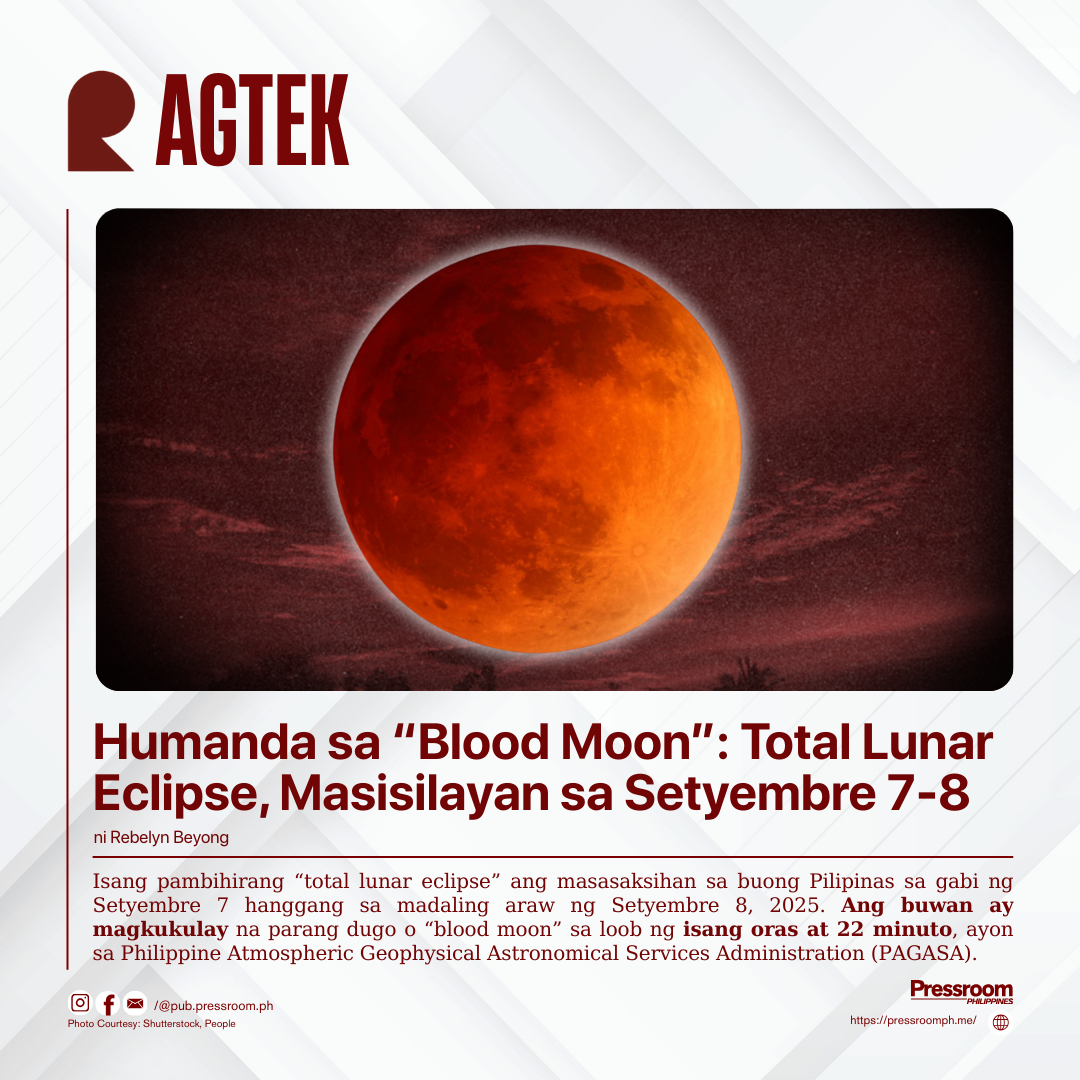Rain used to be a symbol of blessing—cool air, fresh soil, a break from the heat. Yet now, for countless Filipino students, rain has become a burden. Viral photos and videos are circulating online: children walking to school soaking wet, wading through knee-deep floods, clinging to broken umbrellas, shivering in cold classrooms. The worst part? We’ve seen this before. Every year. But nothing changes.
PAGASA may issue rainfall warnings, but do we take action? We talk about climate change, yes—but where are the systems to protect those most affected? We’ve memorized terms like habagat, ITCZ, and tropical depression, but we still haven’t built enough waiting sheds, covered walkways, or even proper drainage systems. Every flood exposes a deeper failure—our nation’s inability to shield its future from the simplest of storms.
How is it that in 2025, students still wrap their bags in plastic, walk barefoot in floodwater, and sit all day in damp uniforms? How is it that rain is enough reason for some to drop out, get sick, or feel ashamed? For the children who fight daily to get an education despite poverty, the rain becomes one more enemy—and their government, too often, remains absent.
This is not just a weather problem. This is a justice problem. A child who arrives in school wet and cold cannot learn the same way as one who arrives dry and warm. This is inequality soaked in rainwater, and it drips down from every leaking school roof and unfinished road. We applaud their resilience, but is that all we can offer—applause for survival?
Science and technology have given us the tools to forecast rain, monitor flood levels, and even develop climate-resilient infrastructure. So what stops us? Misplaced priorities. Budgets spent on optics, not outcomes. We don’t need more speeches during typhoon seasons—we need solutions before the next rainfall. Weather warnings mean nothing without the will to prepare.
In every catastrophe, we shouldn’t only focus on panicking about it but also on the impact and effect it will inflict on us.
Until then, every drop of rain on a child’s back will be a reminder. That while they brave the storm to reach their dreams, those in power remain comfortably dry.






